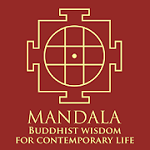Hu's harmony is mostly hogwash. But who cares? The global thirst for China's business, and for alternative power centers to Washington, has given the slogan a free ride.
China is not in the business of exporting war, development models or moral and political blueprints. It wants stability for its upward glide. Democracy comes in a distant second to growth, if at all. The tarnishing of the "D-word" in Iraq has suited China fine.
What suits China less is saffron-robed Buddhist monks in neighboring Myanmar - the former Burma - confronting the guns of a military junta that began its rule in 1988 with the massacre of 3,000 protesters and has not wavered in its corrupt brutality since.
The Burmese troubles are troubling to China for several reasons. They are on its doorstep. They come in a country transformed in recent years into a virtual client state, where the Chinese are building roads, burning forests, backing gas projects and dreaming of long-coveted access to the Indian Ocean.
Worst of all for Beijing, the unrest presents about as clear a picture of good versus evil as exists outside fairy tales. There's little to debate in young monks being gunned down and everything to deplore. For a Buddhist, killing monks is like killing kin. Nine months from the Beijing Olympics, that's bad.
So the Chinese have been writhing. Not to the point of supporting United Nations Security Council action against Burmese barbarity - the official view is that "pressure would not serve any purpose" - but to the point of gestures suggestive of some discomfort.
These have included facilitating the work of the U.N. special envoy, Ibrahim Gambari. He's been instrumental in opening new avenues between the military and Daw Aung San Suu Kyi, the Nobel Peace Prize-winning opposition leader who has long been under house arrest.
China has also offered guarded statements about supporting "stability, reconciliation, democracy and development of Myanmar."
Democracy? Well, up to a point. View all this as the minimum China thinks it can get away with on the last pre-Olympic lap. Stability, as ever, is the key word; "democracy" is a sop. Still, the Chinese may be ready to hedge their Burmese bets.
The junta's leader, Senior Gen. Than Shwe, is 74; nobody's immortal. The Association of Southeast Asian Nations, of which Myanmar is part, is reviewing a new charter that obliges member countries to "strengthen democracy."
The Burmese military is increasingly isolated in a region where the Indonesian transition from military rule has given the lie to generals who say their rule is indivisible from national survival.
That said, Myanmar is a weak state where the danger of fragmentation is real. Insurgencies and drug warlord militias could easily fill a vacuum. "The country presents a democracy challenge, but also a failed state challenge," says Thant Myint-U, a historian.
In North Korea, another Asian country that reeks of failure, China and the United States have united to push Pyongyang out the nuclear business. But it was precisely the nukes that concentrated Chinese minds: nobody in Beijing wanted the militarist wing in Japan emboldened by Kim Jong-il's folly.
Burmese folly lacks such a galvanizing threat. It does, however, present a unique opportunity for a great power, the United States, and two emergent great powers, India and China, to press for a rapid end to the junta's rule.
Myanmar is a buffer state between India and China; both have major economic interests there and fear turmoil. India has already called for "political reform."
I don't think Olympic boycotts work; nor do I think a breakdown in Chinese-American relations serves anyone. But fierce criticism by Mia Farrow of Chinese complicity in Darfur atrocities through support for Sudan produced modest movement. The nine months to the Olympics present a unique opportunity to shame China into shepherding Burmese reform, beginning with the release of Aung San Suu Kyi.
It's time to call "harmony" to task. Monk-murder in a client state is no advertisement for China rising. India and China need political ideas to frame the economic rise of Asia: the sanctity of monk power is not a bad place to start.





